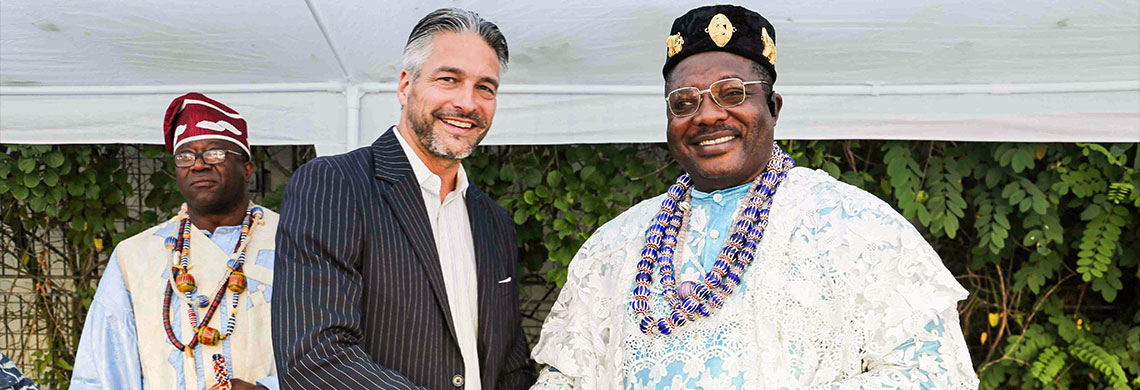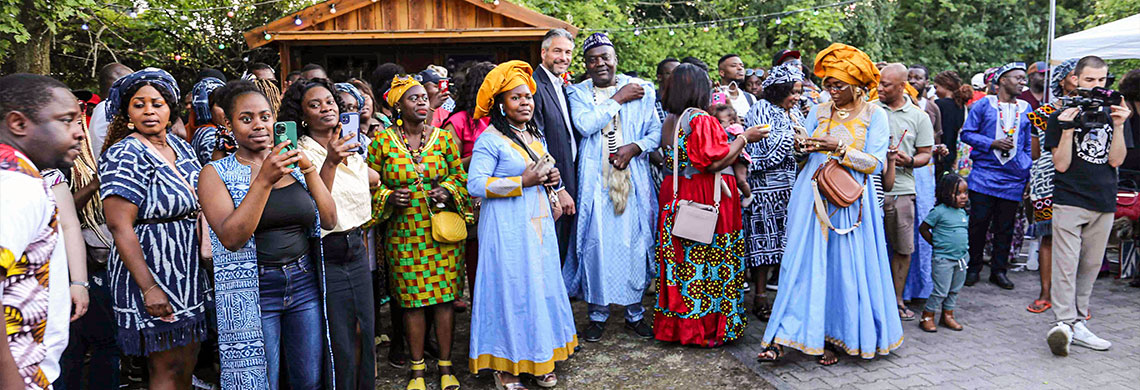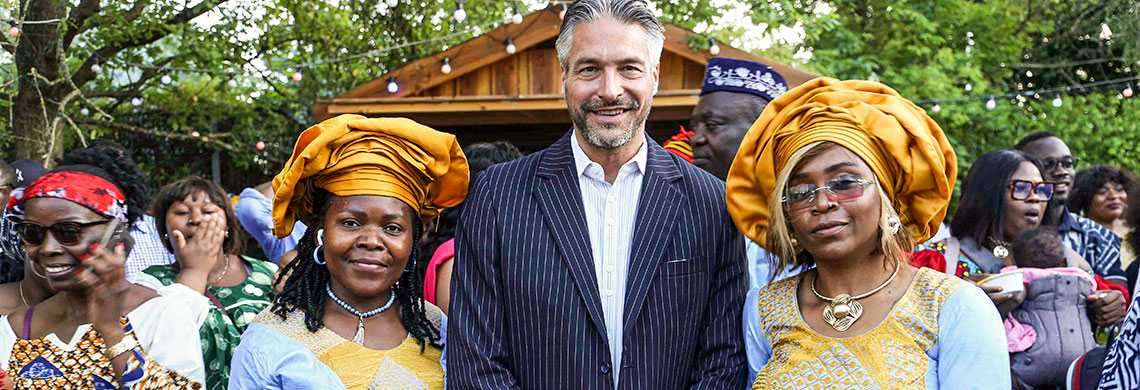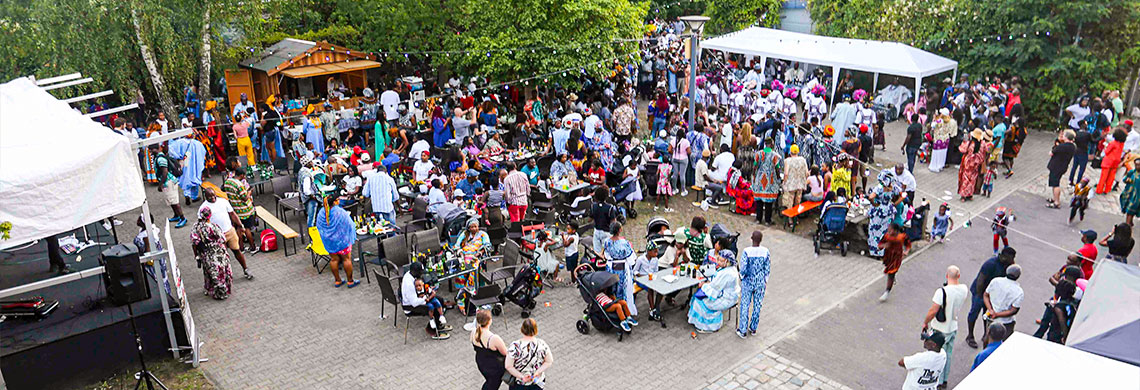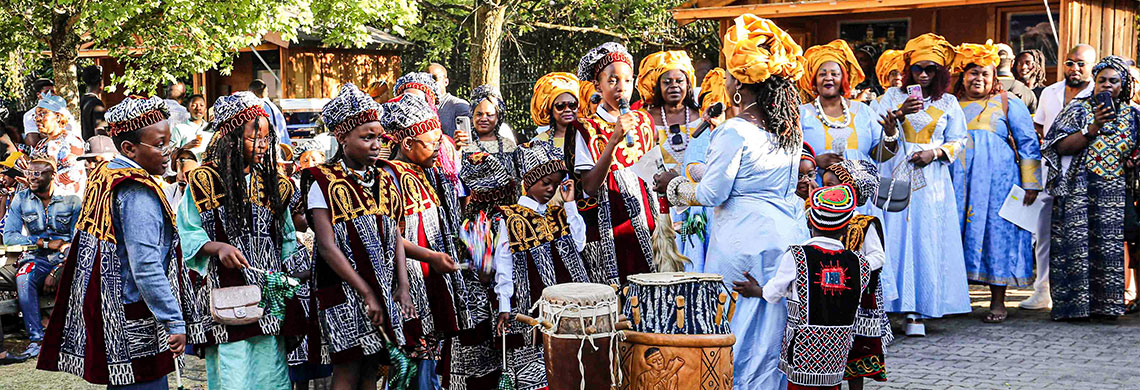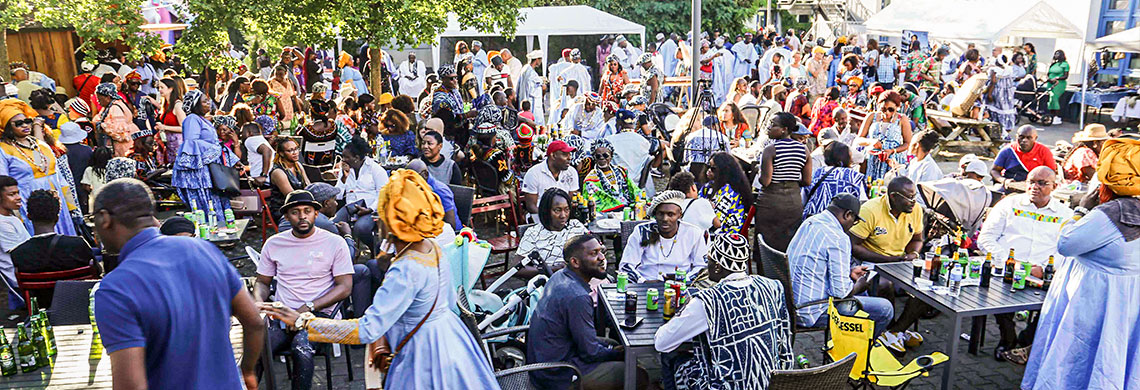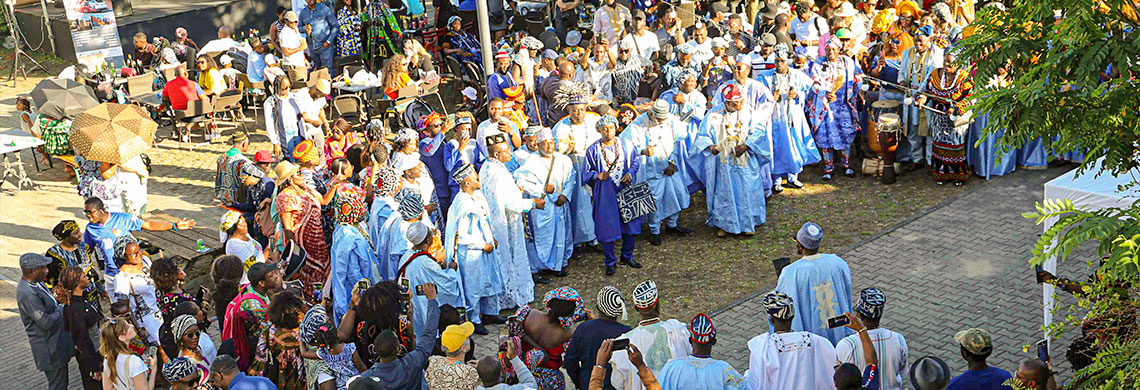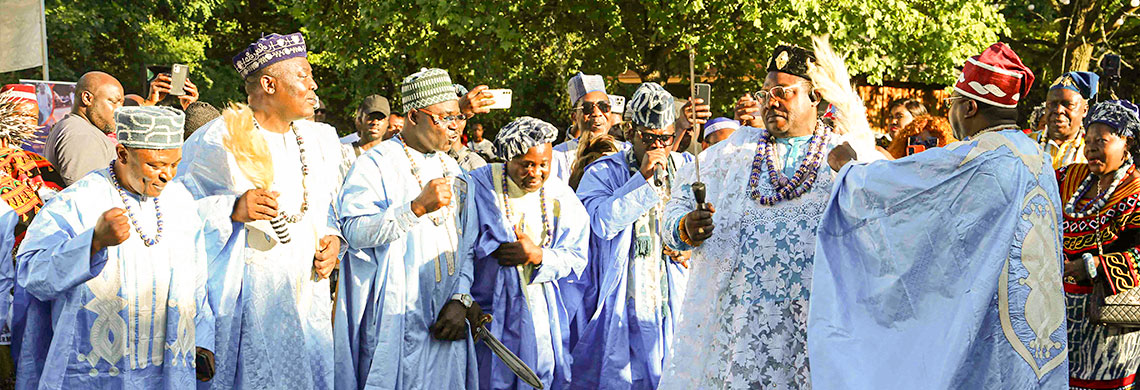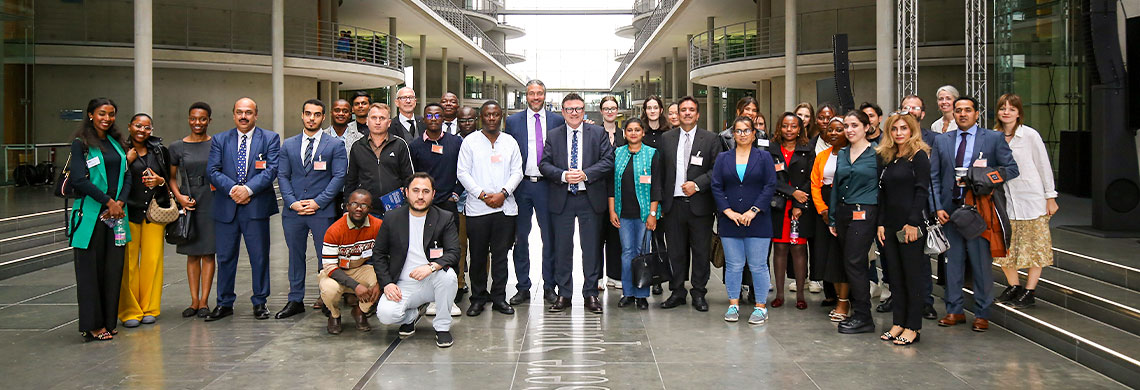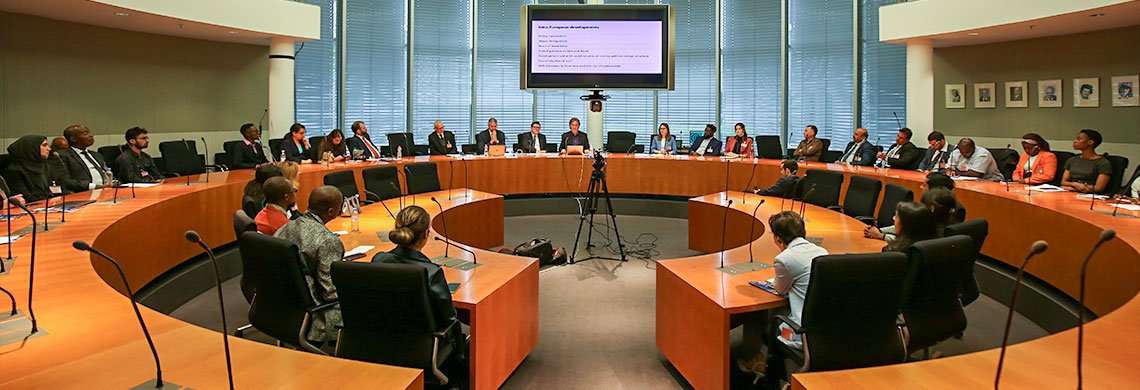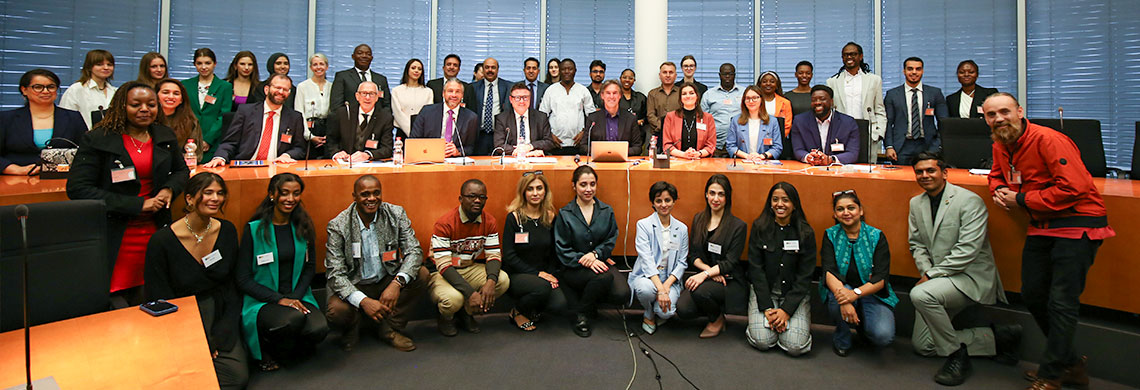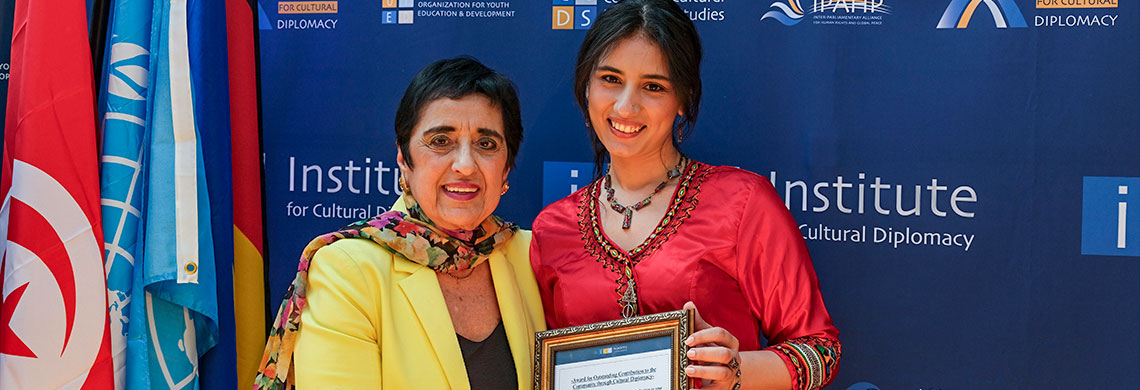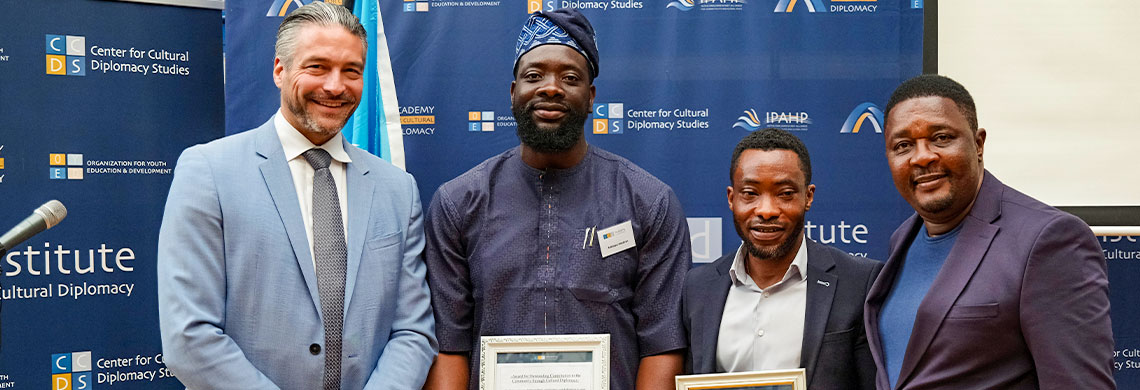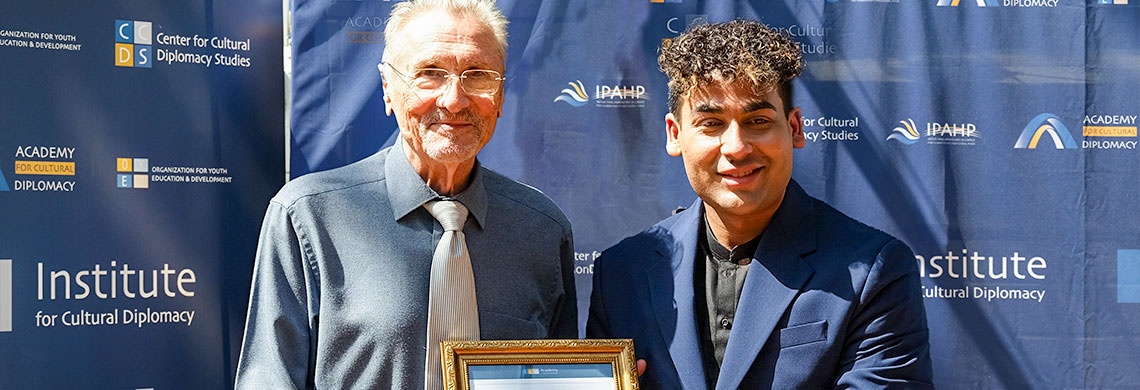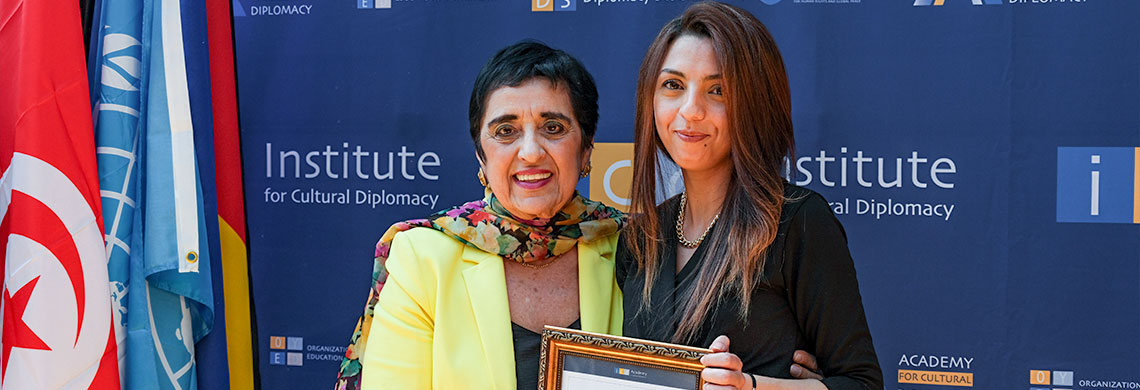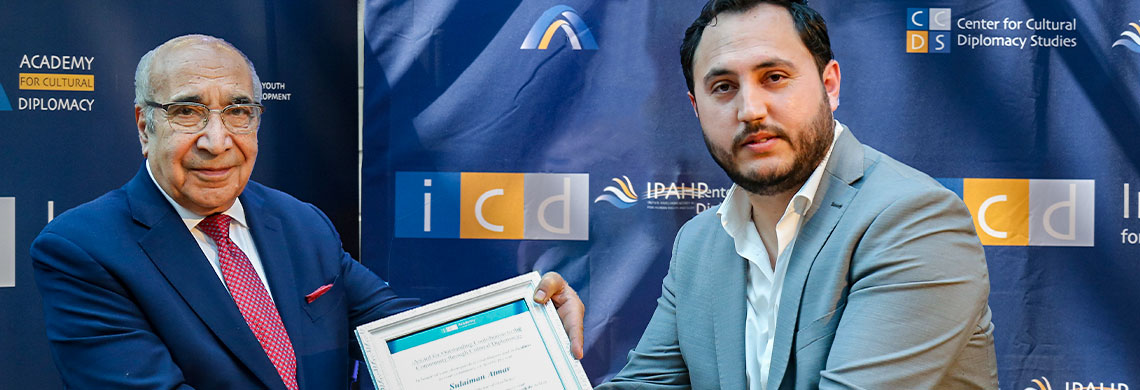Young Leaders´ Forums
The UK Meets Germany

Day 1: An Introduction to Cultural Diplomacy
Day one of the third Weeklong Seminar for “The UK Meets Germany: A Forum for Young Leaders” began in the historic Amerika Haus Berlin, where the group met in the morning. The participants included 9 Brits, 13 Germans and a Pole, and represented a diverse range of academic fields of study and work experience, which made for interesting discussions throughout the week. Having introduced themselves to the group the participants then had a lecture by ICD Development Director and Program Director for the UKMG Program Peter Rees. Mr. Rees highlighted the ambiguity of the terms “culture” and “diplomacy” as one of the main reasons for the lack of unified understanding of the concept of “cultural diplomacy”. He then proceeded to highlight academic definitions which allowed for a general understanding of the term, before giving an overview of some of the main organisations active in the field of cultural diplomacy.
Following a lunch break the participants returned to the Amerika Haus for a discussion with Deutsche Welle TV olitical Moderator Peter Craven. Mr. Craven was born and raised in the UK but has been working for Deutsche Welle in Berlin for over 10 years. In what proved to be one of the highlights of the week, Mr Craven began by outlining the aims of Deutsche Welle TV and how it compares to other international news broadcasters. A lively question and answer session followed and lead to discussion of the differences and similarities between British and German journalism and TV reporting and the general trend away from foreign correspondence and towards recycling news that has emerged across the world. Mr. Craven’s insights as a Brit living in Germany, and working for a German news broadcaster (and instrument of cultural diplomacy) were invaluable.
The final session of the first day saw the participants split into working groups for their projects, which required them to discuss and consider the issues of cultural protectionism, British and German policy towards Russia, the democratisation of culture, and the impact of technological advancements on cultural exchange. After this session had ended the participants made their way to a traditional beer garden on the corner of Berlin’s famous Tiergarten, before heading to the fashionable Savignyplatz for a group dinner.
Day 2: The Big Debate and the Berlin Wall
Day two of the Weeklong Seminar began with a presentation by Mr. Rees on the subject of ICD leadership initiatives – activity organised by ICD Network members to facilitate cultural exchange – and how they ICD could support young leaders interested in this. Two case studies were highlighted showing how such leadership initiatives can attract the attention of large corporate sponsors on the one hand, but can also be organised with little or no financial resources on the other. The morning then continued as day one had ended, with the participants in their working groups discussing the issues they had been assigned. The goal of the working groups was to allow the participants the opportunity to voice their own opinions, get to know other participants better, and prepare answers that they could feedback to the rest of the group on the final day. The groups proved to be a fertile ground for exploring further differences and similarities between the UK and Germany.
In the first session after lunch the participants took centre stage as they had 30 minutes to prepare for a debate on the influence of budget travel on intercultural relations. With the speakers ready, the group was joined by well-known Canadian travel writer and journalist Rory Maclean, the author of two UK top-ten best sellers and the “Meet the Germans” blog for the Goethe Institute. Mr. Maclean moderated the debate, which raised a number of interesting points about the impact of budget travel, including the value of “drunk” cultural exchange and the advantages of cheap travel to students and budding travel writers. Mr. Maclean’s personal experience of the advantages of disadvantages of budget travel, his ability to mix comedy and serious themes, and some well-argued points by the speakers, made for an enjoyable and thought-provoking debate.
Following the debate Mr. Maclean joined the group for a guided tour of the East Side Gallery (the longest remaining stretch of the Berlin Wall) by artist Günter Schaeffer. Mr. Schaeffer is one of the artists who has painted a piece on the East Side Gallery and is the co-founder of the organisation set up to preserve this important landmark and reminder to the Wall. The gallery is currently being repainted for the second time, which gave the participants the opportunity to see the artworks in various stages of decay and restoration as well as hear from Mr. Schaeffer about the stories behind the pictures and his hopes for the future of the site. Following a trip to Mr. Schaeffer’s gallery to see some of the photographs that he has taken capturing the story of the wall since 1989, the group then had a break for dinner before meeting in a bar in East Berlin for the prestigious UKMG pub quiz.
Day 3: Politics and Art
The third day of the third UKMG Weeklong Seminar represented the busiest of the week and began in the DAAD Headquarters as the group met with Katharine Narbutovic, Director of the renowned Artists-in-Berlin program. The program brings talented artists in the fields of literature, music, cinema, and art to Germany’s capital for 12 month periods, during which their only requirement is that they remain in Berlin. Ms. Narbutovic explained how the program had developed from its Cold War beginnings as an instrument to support the cultural life of isolated West Berlin, to its current status as a renowned initiative establishing Berlin as one of the cultural capitals of the world. The freedom afforded the artists, Ms. Narbutovic explained, encouraged creativity and led to unexpected and exciting results for the artists, Berlin, and Germany as a whole.
Following their meeting with Ms. Narbutovic the group returned to the Amerika Haus Berlin where they met with former German Ambassador to the United Kingdom and permanent representative to NATO, and current head of the Deutsch-Britische Gesellschaft, Dr Gebhardt von Moltke. Dr. von Moltke’s vast experience in the UK-Germany relationship on both the political level and in the field of civil society came across in his presentation, which looked at how the British-German relationship had developed over the past half century, where there was room for improvement, and why we should embrace our cultural differences as a foundation for a stronger partnership. The question and answer session following his speech looked at his dealings with the British press as Ambassador and his hopes for the future of the relationship.
After lunch the group met Beatrice Behn and Dagny Kleber from the British and Irish film festival Britspotting. Now in its tenth year, the Britspotting festival focuses on screening British and Irish films in Germany, and Ms. Behn and Ms. Kleber outlined its main activities and how it contributes to cultural exchange between the two countries through its annual film festival and its program “School of Life”. The presentation included the screening of short films which, as was planned, generated considerable discussion with the participants about the topics covered and the potential for short film.
Shortly after the meeting with Britspotting the group headed to Germany’s Parliament buildings for a meeting with CDU Member of Parliament Holger Haibach. With elections fast approaching, Mr. Haibach generously hosted the group in the “gold room” and spoken openly about his hopes for the forthcoming elections, his opinion on the British-German relationship, and public opinion towards the European Union in both countries. As a politician with a focus on foreign policy, and a self-confessed fan of the UK, Mr. Haibach’s session was particularly popular with the participants, who he then gave a guided tour of Germany’s famous Reichstag building.
Shortly after enjoying the view from the top of Sir Norman Foster’s Dome on the Reichstag the group found themselves back in the Amerika Haus preparing for a short film evening coordinated by Britspotting in cooperation with the ICD. The public event, named “Long Live the Screen”, gave the general public the opportunity to learn more about the UKMG program and gave the participants the opportunity to meet people outside of the group. Of equal importance, the event gave the group the opportunity to see an 80 minute program of short films from the UK and Ireland that had the audience (numbering over 100) laughing, crying, and debating long into the night (and for the rest of the week).
Day 4: The German Foreign Office, the British Chamber of Commerce, and the British Council
After a long Wednesday the fourth day of the third UKMG Weeklong Seminar started a little later at the German Foreign Office, where the group met with Dr. Carsten Rüpke. A diplomat with over 20 years of experience, Dr. Rüpke holds the position of Desk Officer responsible for German relations with the UK, Ireland, and Sweden, as well as holding the position of Deputy Director of the Division for Northern Europe. An informal and informative discussion with Mr. Rüpke looked as his life as a diplomat at the Foreign Office, how he works together with the German Embassy in London, and how his current position compared with those he had held previously.
In the afternoon the group welcomed from the British Chamber of Commerce in Germany (BCCG) Andreas Meyer-Schwickerath (Director and Member of the Board) and Thomas Knollmann. Mr. Meyer-Schwickerath gave a thorough presentation of the BCCG which outlined how it was funded, how it operated, and how it had developed over the past few years. Once of the key benefits for members, he explained, was the opportunity to network with other members at events throughout the year. During the question and answer session Mr. Meyer-Schwickerath and Mr. Knollmann spoke in more detail about the newly created Young British Chamber of Commerce in Germany, economic relations between the UK and Germany, and the challenges that British companies face when they set up in Germany.
The final session of the fourth day saw the group head over to East Berlin for a meeting with Dr. Patrick Hart (Deputy Director) and Ms. Pia Ehlers (Head of Marketing and Communications) at the British Council Germany. Dr. Hart began by outlining the history and development of the British Council, focusing in particular on its charter, how it had developed in Europe and across the world, how it worked with other organisations, and its relationship with the British Foreign and Commonwealth Office. Dr. Hart’s presentation was then followed by a presentation from Ms. Ehlers that highlighted the current priorities of the British Council Germany, how it worked together with other organisations, and gave examples of its current activity. Dr. Hart than made an important clarification on the difference between “public diplomacy” and “cultural exchange”, before the group asked a variety of questions about how the British Council Germany compared with offices outside of Europe, and how they worked with smaller initiatives.
Following this meeting the group headed to Perlin Wine bar in East Berlin to celebrate their final evening together.
Day 5: British Politics and the EU, and Working Group Presentations.
The final day of the third UKMG Weeklong Seminar began with a talk by British academic Dr. Roderick Parkes, from the government-sponsored German think-tank SWP. Dr. Parkes started with the bold claim that, were the British Conservative Party to win the next UK General Election, German-British relations would actually improve. He then proceeded to explain why this was the case, highlighting the possibilities for the UK and Germany to cooperate more closely in blocking certain EU legislation. A lively question and answer session followed in which the participants pressed Dr. Parkes on the exact areas in which this blocking cooperation could take place, the extent to which politicians in Germany were concerned by the success of the British National Party in the recent EU Parliament elections, and what could be done to make the EU institutions more understandable to the general publics in Europe.
Following Dr. Parkes’ session, and as the final component of the program, the participants had the opportunity to feedback to the rest of the group on the outcome of their working groups earlier in the week. At the end of each feedback there was the opportunity for other members of the group to ask questions and a number of lively discussions followed. Particularly controversial points that highlighted differences between the participants were the issue of data protection (in particular with regards to online social networking sites) and the apparent decline in popularity of the German language in UK schools and universities.
Mr. Rees then concluded the week by outlining what the distinct goals of the program had been and how the structure had been determined according to these goals. He also outlined key areas in which the ICD could work together with and support the UKMG Forum members in the future, for the purpose of conducting research and organising activities to strengthen German-British relationships.

